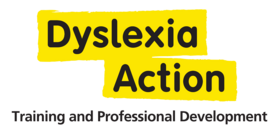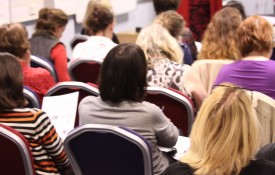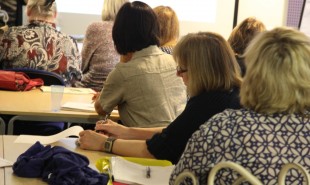Books and Technology Three Ways to use Data in the Classroom Using data in the classroom doesn’t have to be as intimidating as it sounds. This teacher in the USA shares her 3 tips such as electronic polling, creating quick quizzes, and using formative assessment for immediate intervention. Details Here
Books in Alternative Formats ReadHowYouWant helps spread the joy of reading by reformating books into high-quality, alternative formats. As well as offering Large Print and works in larger fonts they also produce work in 36 and 48 point which is a format that helps those suffering from Macular Degenerative disease. The enhanced Daisy format also provides image description, table description, navigation to heading and sub-heading level, sentence and sub-sentence highlighting. Daisy page number states printed page number, hyperlinked index, footnote and Endnote - as well as choice of gender voice and UK, US or Australian accents. In 2014 they will deliver the very first programme that targets people with reading difficulties, and in particular, Dyslexia. Readable English will be available in both print and digital editions by June 2014. Jon Attenborough, General Manager explains, "The English language is a non-phonetic language, which results in between 12 and 15% of native speakers having reading difficulty. Readable English address this - by adding syllable breaks, grey out silent characters, and a series of easy to learn glyphs, all of which enable the reader to retain the original spelling of the word, while learning to read. We have also added to the digital edition a reader-selected language which provides a meaning of the English word in their native language. As with all our editions, the reader can select the format and font of their choice - as well as an enhanced edition which will provide additional programmes for non-English speaking participants, including the abitity to add their native dictionary embedded in the digital programmes. Visit the website here
Microsoft Screenreader Window-Eyes

Window-Eyes is a leading screen reading software application for the blind and visually impaired, that converts components of the Windows operating system into synthesized speech allowing for complete and total access to Windows based computer systems. Window-Eyes integration into Windows is seamless, providing you with instant access to the operating system without having to learn a complicated set of keystrokes. Microsoft has announced that people can now download free screenreader technology when they have a Microsoft Office licence. Steve Tyler, RNIB Head of solutions strategy and planning, said:‘RNIB is delighted by the news that blind and partially sighted people will be able to access a screenreader as part of a regular windows package. For the first time, Microsoft Office users with sight loss can download screenreader technology free of charge. The cost of screenreader software has been a barrier for many people in the past, preventing them from fully engaging in technology. Making software of this nature available on mainstream platforms at no additional charge is a game changer for those that want, and increasingly need, access to digital technologies.’ Read more at the Window-Eyes for Office website: Click Here
Work for Dyslexia Action For job opportunities with Dyslexia Action please see our latest vacancies: Click Here For more details about job descriptions or applications contact: recruitment@dyslexiaaction.org.uk
 Seasonal greetings to all Guild Members for the coming Easter holidays. Seasonal greetings to all Guild Members for the coming Easter holidays.
Next issue The next issue of Guild Gallery will be sent out May 2014.
| 



 informed, skilled practitioners who understand the theory and practice of teaching and/or assessment of dyslexic learners of all ages (we have three start dates per year in September, January and May)
informed, skilled practitioners who understand the theory and practice of teaching and/or assessment of dyslexic learners of all ages (we have three start dates per year in September, January and May)

 expertise and confidence of international teachers, teaching assistants and support professionals in order to ensure the progress and achievement of learners from primary to 18 years with special educational needs.
expertise and confidence of international teachers, teaching assistants and support professionals in order to ensure the progress and achievement of learners from primary to 18 years with special educational needs.
 understanding of brain anatomy and language in children between 2 and 4 years old. Their study, published in the Journal of Neuroscience, did not show more development in the left side of the brain as children enter the critical period of language acquisition. "What we actually saw was that the asymmetry of myelin was there right from the beginning, even in the youngest children in the study, around the age of 1," said the study's lead author, Jonathan O'Muircheartaigh, the Sir Henry Wellcome Postdoctoral Fellow at King's College London. "Rather than increasing, those asymmetries remained pretty constant over time."
understanding of brain anatomy and language in children between 2 and 4 years old. Their study, published in the Journal of Neuroscience, did not show more development in the left side of the brain as children enter the critical period of language acquisition. "What we actually saw was that the asymmetry of myelin was there right from the beginning, even in the youngest children in the study, around the age of 1," said the study's lead author, Jonathan O'Muircheartaigh, the Sir Henry Wellcome Postdoctoral Fellow at King's College London. "Rather than increasing, those asymmetries remained pretty constant over time." National Literacy Trust are holding a conference looking specifically at issues around boys' literacy, exploring practical strategies which will engage boys with literacy activities and a discussion of the evidence from projects in this area.
National Literacy Trust are holding a conference looking specifically at issues around boys' literacy, exploring practical strategies which will engage boys with literacy activities and a discussion of the evidence from projects in this area. 




 Seasonal greetings to all Guild Members for the coming Easter holidays.
Seasonal greetings to all Guild Members for the coming Easter holidays.